
Khuvsgul Lake: Mongolia’s Blue Pearl
Khuvsgul Lake, often referred to as the 'Blue Pearl of Mongolia', is a pristine freshwater lake located in the northern part of the country. It's the largest freshwater lake by volume in Mongolia and the second largest by area. The lake is surrounded by lush forests, majestic mountains, and is home to a diverse range of wildlife, making it a paradise for nature lovers and adventurers alike. One of the highlights of visiting Khuvsgul Lake is the sheer clarity of its waters, which are so clean and pure that you can drink directly from the lake. The surrounding Khuvsgul National Park offers numerous activities such as hiking, horseback riding, and bird watching. During the winter, the lake freezes over, creating a stunning icy landscape that is perfect for ice skating and ice fishing. The local Tsaatan people, known for their traditional reindeer herding, add a unique cultural dimension to any visit. Tourists can learn about their way of life, enjoy reindeer sleigh rides, and even stay in traditional yurts. The area around Khuvsgul Lake is also dotted with ancient petroglyphs and historical sites, providing a glimpse into Mongolia's rich history. Whether you are seeking adventure, relaxation, or cultural immersion, Khuvsgul Lake offers an unforgettable experience in one of the most beautiful and unspoiled regions of Mongolia.
Local tips in Khuvsgul Lake
- Visit during summer for the best weather and a range of outdoor activities.
- Stay in traditional yurts for an authentic Mongolian experience.
- Pack warm clothing if visiting in winter, as temperatures can drop significantly.
- Bring a reusable water bottle; the lake's water is safe to drink.
- Hire a local guide to learn more about the Tsaatan culture and explore hidden gems.
Khuvsgul Lake: Mongolia’s Blue Pearl
Khuvsgul Lake, often referred to as the 'Blue Pearl of Mongolia', is a pristine freshwater lake located in the northern part of the country. It's the largest freshwater lake by volume in Mongolia and the second largest by area. The lake is surrounded by lush forests, majestic mountains, and is home to a diverse range of wildlife, making it a paradise for nature lovers and adventurers alike. One of the highlights of visiting Khuvsgul Lake is the sheer clarity of its waters, which are so clean and pure that you can drink directly from the lake. The surrounding Khuvsgul National Park offers numerous activities such as hiking, horseback riding, and bird watching. During the winter, the lake freezes over, creating a stunning icy landscape that is perfect for ice skating and ice fishing. The local Tsaatan people, known for their traditional reindeer herding, add a unique cultural dimension to any visit. Tourists can learn about their way of life, enjoy reindeer sleigh rides, and even stay in traditional yurts. The area around Khuvsgul Lake is also dotted with ancient petroglyphs and historical sites, providing a glimpse into Mongolia's rich history. Whether you are seeking adventure, relaxation, or cultural immersion, Khuvsgul Lake offers an unforgettable experience in one of the most beautiful and unspoiled regions of Mongolia.
When is the best time to go to Khuvsgul Lake?
Iconic landmarks you can’t miss
MS Guesthouse
Immerse yourself in the beauty of Khovsgol at MS Guesthouse, where traditional Mongolian hospitality meets modern comfort.
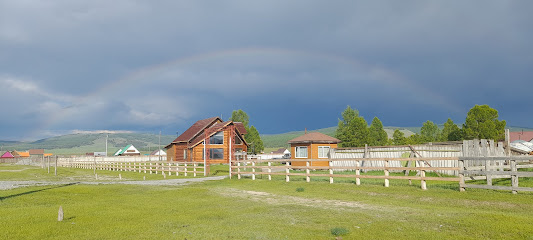
Toilogt tourist camp
Discover the serene beauty of Khovsgol at Toilogt Tourist Camp – a perfect blend of comfort and nature in Mongolia's stunning wilderness.

Leona resort
Experience the tranquility of Leona Resort, nestled by the stunning Khuvsgul Lake, where adventure meets relaxation in Mongolia's breathtaking landscapes.

Хөвсгөл Эко тур жуулчны бааз Khuvsgul Eco Tour Tourist Camp
Experience the serene beauty of Khuvsgul Eco Tour Tourist Camp, a unique beachside retreat in Mongolia offering adventure and tranquility amidst nature's wonders.
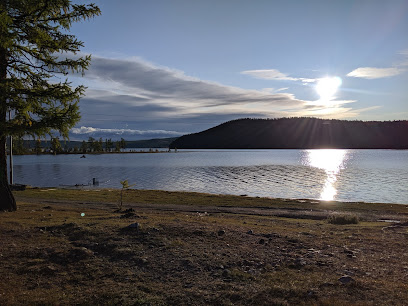
North Khuvsgul Tourist Camp
Explore the breathtaking beauty of Khovsgol at North Khuvsgul Tourist Camp, a serene retreat for adventure and relaxation amidst Mongolia's majestic landscapes.
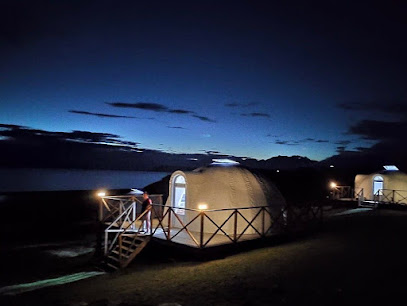
Wooden Cord island
Discover the serene beauty of Wooden Cord Island, a national forest paradise in Khovsgol, perfect for nature lovers and adventure seekers.
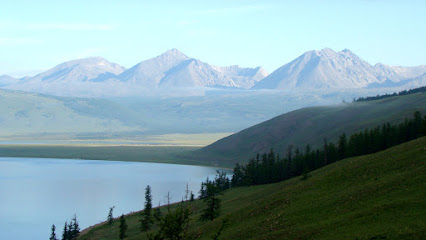
Mongol Ujin Tour Camp
Experience the natural beauty and rich culture of Mongolia at Mongol Ujin Tour Camp in Khovsgol, where adventure and tranquility await.
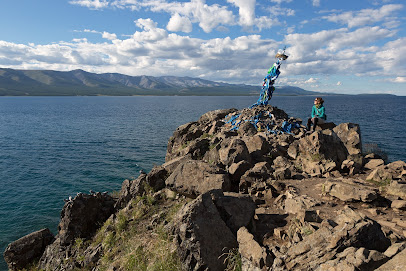
Khuvsgul dalai tourist camp
Explore the natural beauty of Mongolia at Khuvsgul Dalai Tourist Camp, where adventure meets tranquility by the stunning Khuvsgul Lake.

Khatgal camp (Хатгал кэмп)
Experience the tranquility and adventure at Khatgal Camp, your gateway to the breathtaking beauty of Lake Khovsgol in Mongolia.
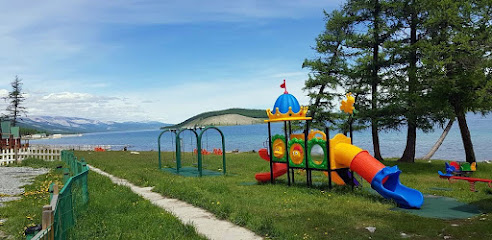
Unmissable attractions to see
Хөвсгөл Хатгал
Discover the tranquil beauty of Khovsgol Hatgal, where pristine waters and majestic mountains await your exploration in Mongolia's northern wilderness.
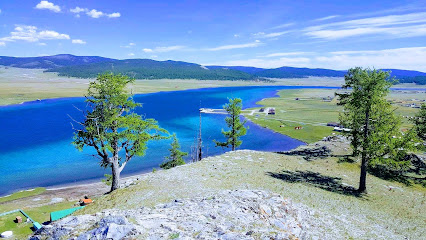
Turbaza Legenda Khubsugula
Explore the breathtaking hiking trails of Turbaza Legenda Khubsugula in Mongolia's Khovsgol region, a paradise for adventure seekers and nature lovers.
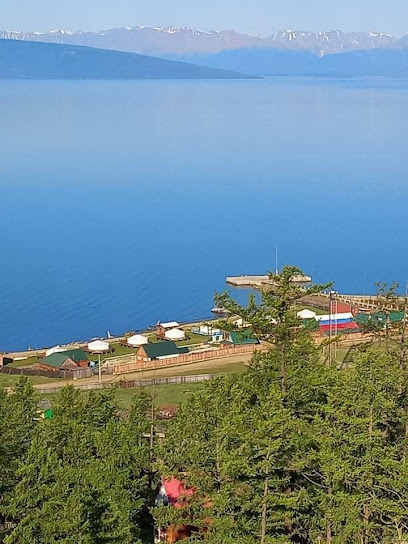
Khuvsgul dalai tourist camp
Discover the tranquil beauty of Khuvsgul Lake at Khuvsgul Dalai Tourist Camp, where nature meets adventure in Mongolia's stunning landscapes.

Dalainchimeg tourist camp
Explore the serene beauty of Khovsgol at Dalainchimeg Tourist Camp, where nature and adventure come together for an unforgettable experience.
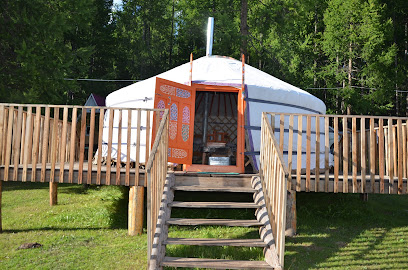
KHUVSGUL WATERWAY
Explore the stunning Khuvsgul Waterway, a serene natural retreat in Mongolia's Khovsgol region, perfect for adventure and relaxation amidst breathtaking landscapes.
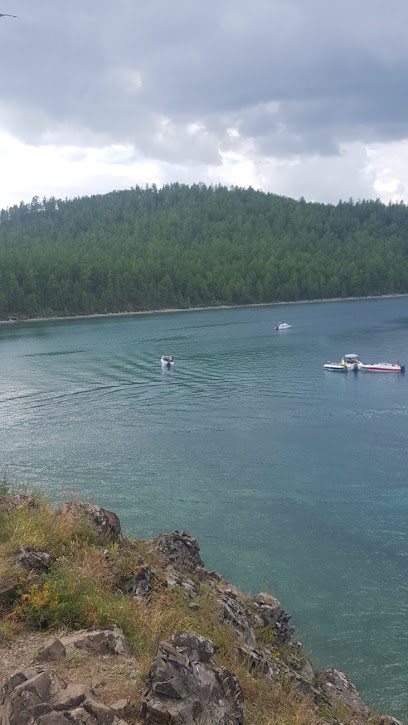
Blue Pearl Tourist Camp
Explore the tranquil beauty of Khovsgol at Blue Pearl Tourist Camp, where adventure meets Mongolian culture amidst stunning landscapes.
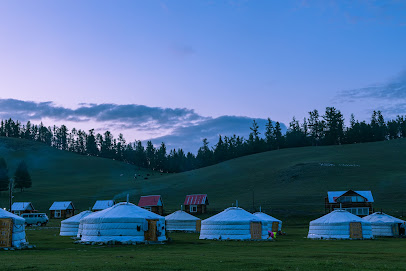
Guest house & restaurant
Discover the authentic tastes and warm hospitality of Mongolia at Almaaz Zoogiin Gazar, your perfect retreat in beautiful Hatgal.
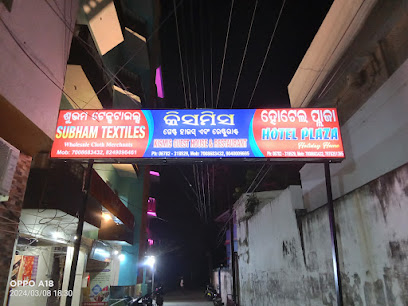
Мөнгөн эрэг амралтын газар
Experience the serene beauty and outdoor adventures at Mönkhgën Erëg Amraltyn Gazár by Khuvsgul Lake, Mongolia's nature retreat.
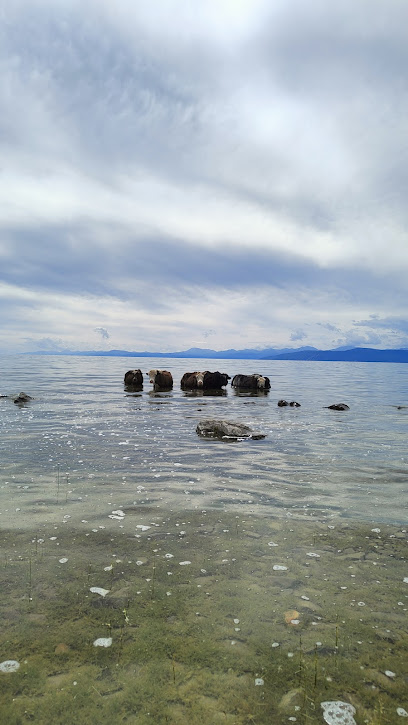
khukhuu tour
Experience the serene beauty of Khovsgol at Khukhuu Tour Campground, where nature meets tranquility in Mongolia's breathtaking landscapes.
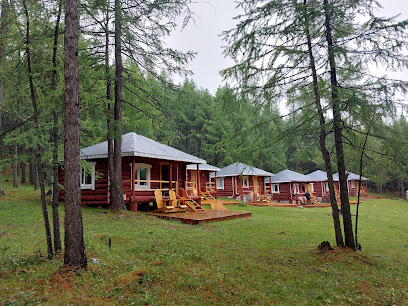
DalainChimeg Tourist camp
Experience the tranquility and breathtaking beauty of Khovsgol at DalainChimeg Tourist Camp, your gateway to Mongolia's stunning wilderness.
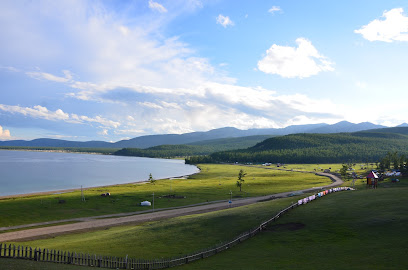
ARIG camp
Experience the stunning landscapes and rich culture at ARIG Camp in Khovsgol, Mongolia, where adventure and tranquility await every traveler.
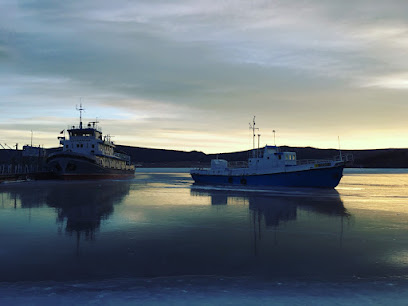
Sana Ono viewpoint
Discover the breathtaking beauty of Sana Ono Viewpoint in Khovsgol, Mongolia, where stunning vistas await every traveler seeking natural wonder.

sand beach
Discover the tranquil beauty of sand beach in Khovsgol, Mongolia - a perfect blend of adventure and relaxation in nature's embrace.
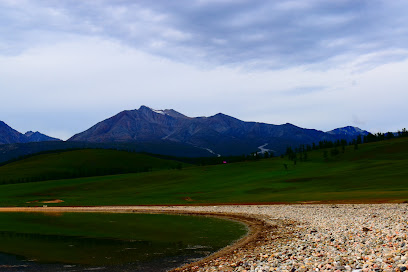
Essential places to dine
Khuvsgul dalai tourist camp
Experience tranquility at Khuvsgul Dalai Tourist Camp by Mongolia's pristine lake; perfect for nature lovers and adventure seekers alike.

Lake Forest Lodge
Discover tranquility at Lake Forest Lodge on Khuvsgul Lake - a perfect blend of adventure and relaxation amidst Mongolia's stunning landscapes.
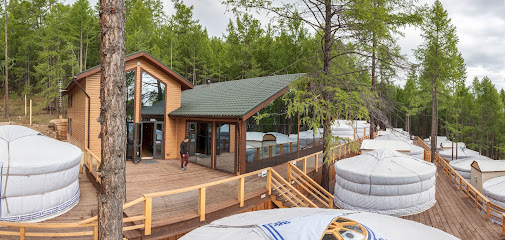
Markets, malls and hidden boutiques
Hunnu Mall
Discover shopping, dining, and entertainment at Hunnu Mall, Ulaanbaatar's premier shopping destination, blending local culture with modern retail.
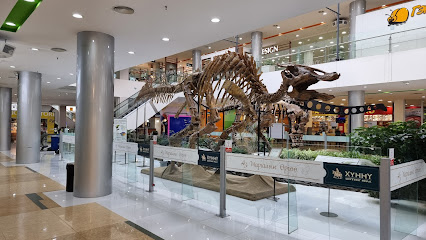
Naran Mall
Discover Ulaanbaatar's Naran Mall: A shopping haven with diverse brands, delightful dining, and family-friendly entertainment!
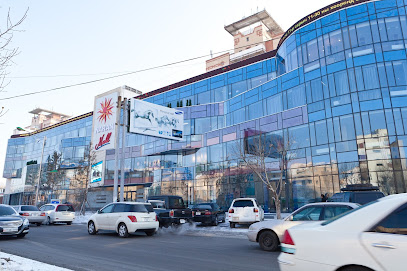
Khuvsgul Lake
Discover the breathtaking beauty of Khuvsgul Lake, a pristine Mongolian gem surrounded by majestic mountains and rich culture.
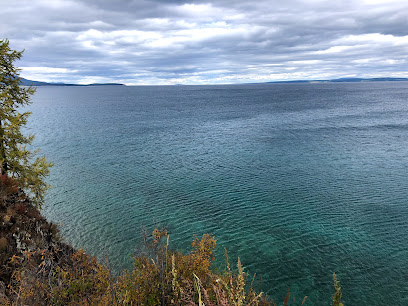
Mary & Martha Mongolia
Explore Mary & Martha Mongolia for unique artistic handicrafts and fair trade souvenirs that embody the spirit of Mongolian culture.
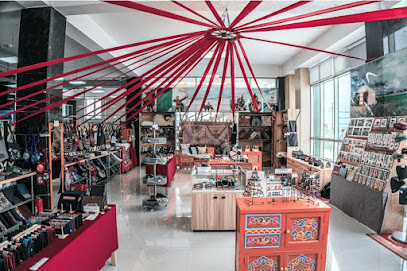
MS Guesthouse
Discover the beauty of Lake Khovsgol at MS Guesthouse, a tranquil retreat for adventurers and nature lovers in Hatgal, Mongolia.
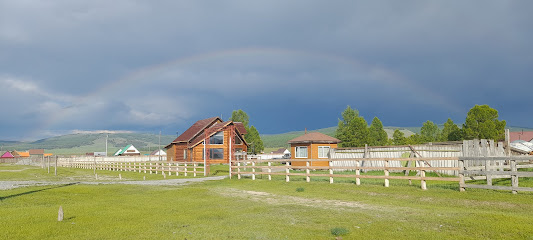
Toilogt tourist camp
Discover the enchanting beauty of Khovsgol at Toilogt Tourist Camp, where nature meets Mongolian hospitality in perfect harmony.

ART 88 RESORT
Experience the beauty of Khovsgol at ART 88 RESORT, a perfect blend of relaxation and adventure amidst nature's wonders.
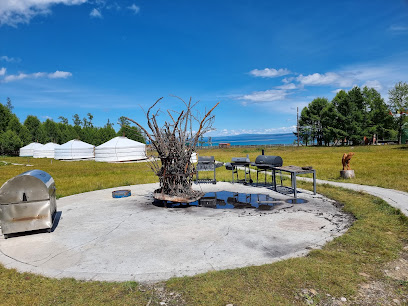
New Roots Coffee
Discover exceptional coffee and a cozy atmosphere at New Roots Coffee in Hatgal, a perfect retreat for travelers seeking relaxation and local flavor.
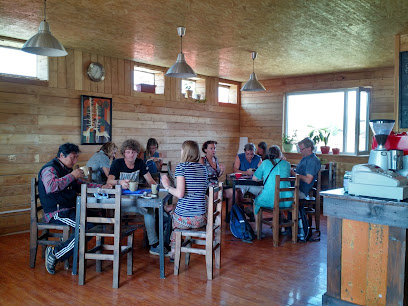
Tsagaan Alt Wool Shop
Explore Tsagaan Alt Wool Shop for an authentic selection of Mongolian wool products, showcasing traditional craftsmanship and vibrant designs.
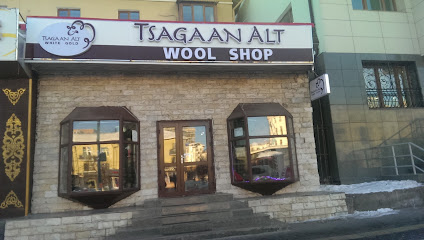
Arya Cafe&bubble tea&zurh zusem byaluu
Discover Arya Cafe in Hatgal: A charming cafe offering delicious bubble tea and local flavors amidst stunning Khovsgol landscapes.
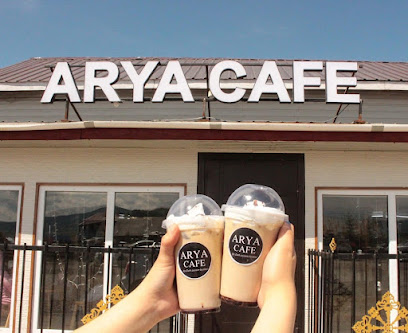
Taiga Lodge Khuvsgul
Experience the serene beauty of Khuvsgul at Taiga Lodge, where nature and comfort unite for an unforgettable adventure.
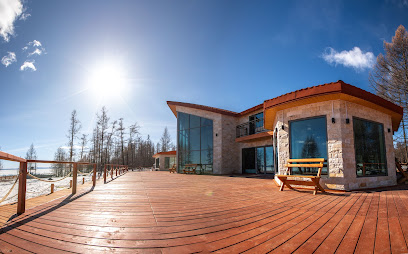
Khuvsgul dalai tourist camp
Discover the tranquility and natural beauty of Khuvsgul Lake at Khuvsgul Dalai Tourist Camp, the perfect escape for nature lovers and adventure seekers.
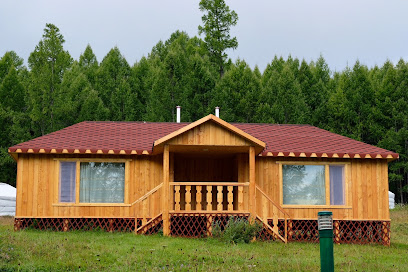
Khatgal camp (Хатгал кэмп)
Experience the natural beauty and cultural richness of Khovsgol at Khatgal Camp, where adventure meets comfort in a stunning lakeside setting.
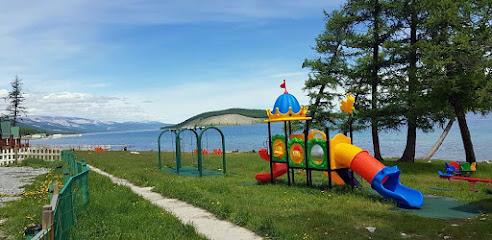
Altanzagas COFFEE shop
Experience the tranquil charm of Altanzagas Coffee Shop in Hatgal, where exceptional coffee meets stunning views of Khovsgol.
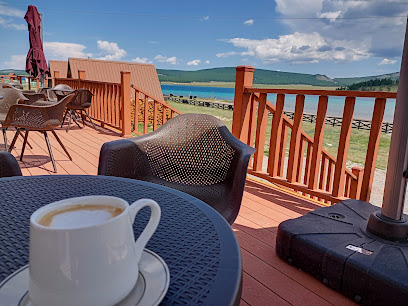
Оргил Ресторан/Orgil Restaurant/
Discover the taste of Mongolia at Orgil Restaurant in Hatgal, where every dish tells a story of tradition and flavor.
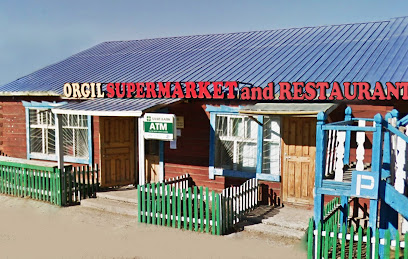
Essential bars & hidden hideouts
MS Guesthouse
Discover the essence of Mongolia at MS Guesthouse in Hatgal, where comfort meets adventure in stunning Khovsgol.
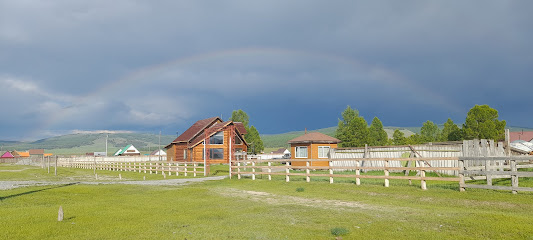
Hatgal complex
Discover the flavors of Mongolia at Hatgal Complex, where traditional cuisine meets breathtaking views in Khovsgol.
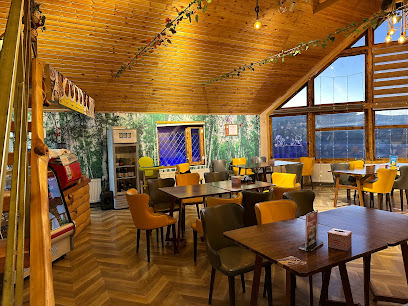
Blue Sky Lounge
Discover the chic Blue Sky Lounge in Ulaanbaatar for stunning views, exquisite cocktails, and a vibrant nightlife atmosphere.
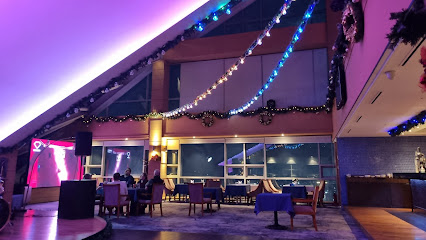
Vineyard Wine Bar & Restaurant
Discover the best of Ulaanbaatar's culinary scene at Vineyard Wine Bar & Restaurant, where exquisite dishes and fine wines create an unforgettable dining experience.
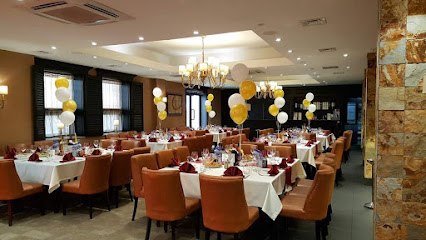
Agartha Resort
Discover the flavors of Mongolia at Agartha Resort, a culinary gem nestled in the stunning landscapes of Khovsgol.
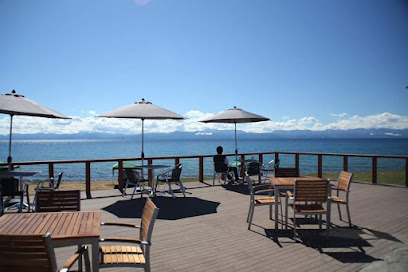
Wind Of’ ice BBQ Restaurant
Discover the authentic taste of Mongolian barbecue at Wind Of’ ice BBQ Restaurant in Khovsgol, where stunning views meet exquisite flavors.
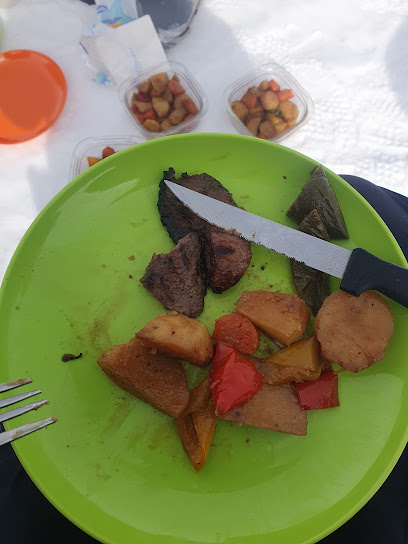
Сарнай Кафе /Rose Cafe
Experience the essence of Mongolian cuisine at Сарнай Кафе, a cozy restaurant in Hatgal, Khovsgol, perfect for travelers seeking local flavors.
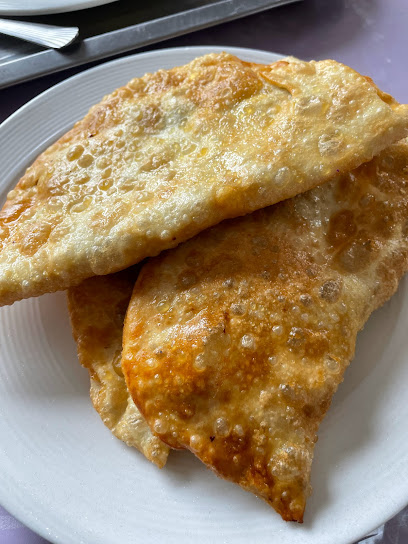
Уют кафе
Experience the inviting atmosphere and authentic flavors of Mongolia at Уют кафе in Khovsgol, a must-visit for all food lovers.
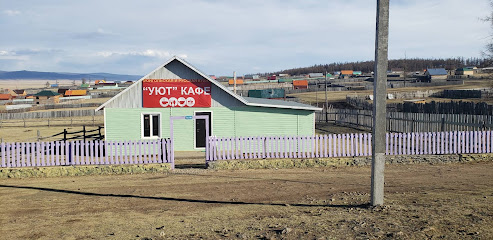
Energy Guest House & Restaurant
Discover the serene beauty of Hatgal at Energy Guest House & Restaurant, your perfect escape in Khovsgol, Mongolia.
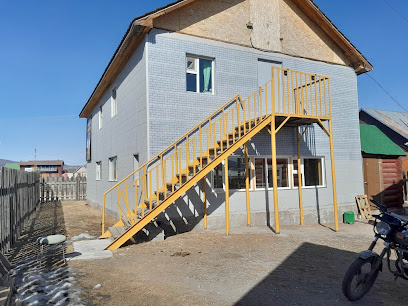
Хангал(Khangal) Pub&Restaurant
Experience the vibrant atmosphere and delicious local cuisine at Khangal Pub & Restaurant in Ulaanbaatar, the heart of Mongolia's nightlife.
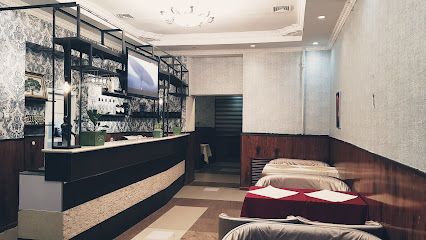
Алмааз ресторан
Savor authentic Mongolian cuisine at Алмааз Ресторан in the heart of Hatgal, where every meal is a journey through local flavors.

Далайн сувд ресторан (Dalain suvd)
Experience authentic Mongolian cuisine and stunning views at Dalain Suvd Restaurant in Khovsgol, the heart of Mongolia's natural beauty.

AMI RESORT
Discover the charm of Ami Resort, where serene landscapes meet delightful dining and vibrant entertainment in Khovsgol, Mongolia.
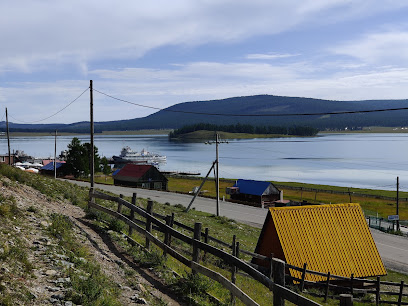
white lake camp
Experience the tranquil beauty of White Lake Camp in Ovorkhangai, a perfect blend of nature, culture, and adventure in Mongolia.
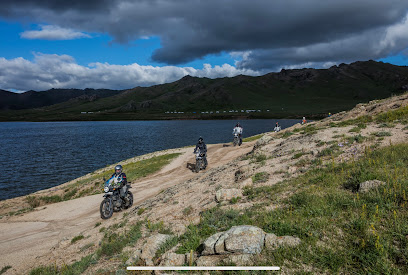
Local Phrases about Khuvsgul Lake
-
- HelloСайн байна уу
[Sain baina uu] - GoodbyeБаяртай
[Bayartai] - YesТийм
[Tiim] - NoҮгүй
[Ugui] - Please/You're welcomeБаярлалаа
[Bayarlalaa] - Thank youБаярлалаа
[Bayarlalaa] - Excuse me/SorryУучлаарай
[Uuchlaarai] - How are you?Чамайг хэрхэн байна уу?
[Chamaig kherkhen baina uu?] - Fine. And you?Сайн байна. Чамайг чинь хэрхэн байна уу?
[Sain baina. Chamaig chin kherkhen baina uu?] - Do you speak English?Та англи хэл хийдэг уу?
[Ta angli khel khiedeg uu?] - I don't understandБи ойлгоцгүй байна
[Bi oilgotsgui baina]
- HelloСайн байна уу
-
- I'd like to see the menu, pleaseМенюг харахыг хүсч байна
[Menyug kharakhyg khusch baina] - I don't eat meatБи мах хоолоо хүнсээр идэхгүй
[Bi makh khooloo khunsee irkhegui] - Cheers!Эрүүл мэндийн төлөө!
[Eruul mendii tölöö!] - I would like to pay, pleaseТөлбөрөө хийж байна
[Tölboröö khiij baina]
- I'd like to see the menu, pleaseМенюг харахыг хүсч байна
-
- Help!Тусламж!
[Tuslamzh!] - Go away!Явж ирээд!
[Yavzh ireed!] - Call the Police!Полицыг дуудна уу!
[Policsig dudna uu!] - Call a doctor!Эмч дуудна уу!
[Emch dudna uu!] - I'm lostБи алсан байна
[Bi alsan baina] - I'm illБи эмчилгээгүй байна
[Bi emchilgeegüi baina]
- Help!Тусламж!
-
- I'd like to buy...Би ...-г авахыг хүсч байна
[Bi ...-g avakhig khusch baina] - I'm just lookingБи зөвхөн харах гэж байна
[Bi zövhön kharakh gez baina] - How much is it?Энэ нь хэд вэ?
[Ene n khed ve?] - That's too expensiveЭнэ нь хэтэрхий дэлхий
[Ene n kheterkhi delkhii] - Can you lower the price?Та үнээ дээшлүүлэх боломжтой уу?
[Ta ünee deeshlüülkh bolomzhtoi uu?]
- I'd like to buy...Би ...-г авахыг хүсч байна
-
- What time is it?Цаг хэд вэ?
[Tsag khed ve?] - It's one o'clockНэг цаг байна
[Neg tsag baina] - Half past (10)Арван хоёр цаг
[Arvan khöör tsag] - MorningӨглөө
[Öglöö] - AfternoonОрой
[Oroi] - EveningОрой
[Oroo] - YesterdayӨчигдөр
[Öchigdör] - TodayӨнөөдөр
[Önöödör] - TomorrowМаргааш
[Margaash] - 1Нэг
[Neg] - 2Хоёр
[Khöör] - 3Гурван
[Gurvan] - 4Дөрвөн
[Dörvön] - 5Таван
[Tavan] - 6Зургаа
[Zurgaa] - 7Долоо
[Doloo] - 8Найм
[Naim] - 9Ес
[Yes] - 10Арав
[Arav]
- What time is it?Цаг хэд вэ?
-
- Where's a/the...?... хаана байна вэ?
[... khaana baina ve?] - What's the address?Хаяг хаана байна вэ?
[Khayag khaana baina ve?] - Can you show me (on the map)?Та надад (газрын зураг дээр) харуулж өгөх боломжтой уу?
[Ta nadad (gazrin zurag deer) kharuulj ögökh bolomzhtoi uu?] - When's the next (bus)?Дараагийн (автобус) хэзээ байна вэ?
[Daraagiin (avtobus) khezee baina ve?] - A ticket (to ....)Цуглуулга (.... руу)
[Tsugluulga .... ruu]
- Where's a/the...?... хаана байна вэ?
History of Khuvsgul Lake
-
Khuvsgul Lake, also known as the 'Blue Pearl of Mongolia,' was formed over two million years ago during the Quaternary period. The lake is a pristine freshwater body, one of the oldest and largest of its kind in the world, holding nearly 70% of Mongolia's fresh water and 0.4% of the world's total. Glacial movements and tectonic activities carved out the deep basin in which the lake lies, making it an essential natural reservoir.
-
The region surrounding Khuvsgul Lake has been inhabited for thousands of years by various indigenous tribes, including the Darkhad and the Tsaatan, who are closely related to the Tuvan people of Siberia. These nomadic tribes have traditionally relied on reindeer herding, fishing, and hunting for their livelihood. The Tsaatan, in particular, are renowned for their unique shamanistic practices and deep spiritual connection to the natural world.
-
Shamanism has played a crucial role in the cultural and spiritual life of the people living around Khuvsgul Lake. The lake and its surroundings are considered sacred, with many local legends and myths attributing supernatural qualities to the area. Shamans, acting as intermediaries between the physical and spiritual worlds, perform rituals to honor the spirits of the lake and the surrounding mountains. These practices are deeply embedded in the life and traditions of the Tsaatan and Darkhad people.
-
During the era of the Mongol Empire, Khuvsgul Lake was a significant waypoint for the armies and messengers traveling across the vast empire. The lake's fresh water and abundant fish provided sustenance for the troops. The Mongol leader Chinggis Khan is said to have visited the lake, and it is believed that the region served as a strategic location for military planning and coordination.
-
In the 20th century, Mongolia came under Soviet influence, which affected the Khuvsgul region in various ways. The Soviets initiated scientific research on the lake's unique ecosystem and began efforts to preserve its natural beauty. Today, Khuvsgul Lake is part of the Khuvsgul National Park, established in 1992, which aims to protect the area's biodiversity and promote sustainable tourism.
-
Khuvsgul Lake continues to hold immense cultural significance for the people of Mongolia. It is a popular destination for both domestic and international tourists, who come to experience its untouched natural beauty and learn about the rich cultural heritage of the local tribes. Annual festivals, such as the Ice Festival held in March, celebrate the region's traditions and attract visitors to the frozen expanse of the lake for games, races, and cultural performances.
Khuvsgul Lake Essentials
-
Khuvsgul Lake is located in northern Mongolia, near the Russian border. The nearest international airport is Chinggis Khaan International Airport in Ulaanbaatar, Mongolia's capital. From Ulaanbaatar, you can take a domestic flight to Murun, the capital of Khuvsgul Province, which is about 100 kilometers from the lake. Alternatively, you can travel by bus or car from Ulaanbaatar to Murun, which takes approximately 12-14 hours. From Murun, local taxis or shared minivans can take you to Khuvsgul Lake.
-
Once at Khuvsgul Lake, transportation options include renting a car or hiring a local driver. Bicycles and horses are also popular means of getting around, particularly for exploring the scenic areas around the lake. Local taxis and shared minivans are available for transportation between Murun and the lake. For a more immersive experience, consider hiking or horse trekking along the numerous trails that encircle the lake.
-
The official currency in Mongolia is the Mongolian Tugrik (MNT). While credit cards are accepted in some hotels and restaurants in Murun, it is advisable to carry cash, especially when traveling to remote areas around Khuvsgul Lake. ATMs are available in Murun but may be scarce near the lake, so it is recommended to withdraw sufficient cash beforehand.
-
Khuvsgul Lake is generally a safe destination for tourists, with low crime rates. However, it is always wise to take standard precautions such as not leaving your belongings unattended and avoiding isolated areas at night. Petty theft can occur, so keep valuables secure. There are no specific high-crime areas targeting tourists, but staying vigilant and aware of your surroundings is always advisable.
-
In case of emergency, dial 103 for medical emergencies and 102 for police assistance. Murun has medical facilities and pharmacies where you can seek help or purchase over-the-counter medications. It is highly recommended to have travel insurance that covers medical emergencies. For serious health issues, evacuation to Ulaanbaatar may be necessary.
-
Fashion: Do dress in layers, as the weather can change rapidly. Avoid wearing revealing clothing. Religion: Do show respect for local customs and traditions. When visiting monasteries or sacred sites, dress modestly and remove your hat. Public Transport: Do be respectful and offer your seat to elderly passengers. Don't smoke or drink alcohol on public transport. Greetings: Do greet people with a friendly nod or a handshake. Mongolian people value politeness and respect. Eating & Drinking: Do try local dishes and accept food offerings graciously. Don't refuse hospitality, as it is considered impolite.
-
To experience Khuvsgul Lake like a local, consider staying in a traditional ger (yurt) at one of the local camps. Engage with the locals and participate in activities such as fishing, horseback riding, and traditional Mongolian games. Visit during the Naadam Festival in July to experience local culture and festivities. Don't miss the opportunity to sample traditional Mongolian cuisine, such as buuz (steamed dumplings) and khuushuur (fried meat pastries).
Nearby Cities to Khuvsgul Lake
-
Things To Do in Zuunmod
-
Things To Do in Semey
-
Things To Do in Pavlodar
-
Things To Do in Karakol
-
Things To Do in Cholpon-Ata
-
Things To Do in Nur-Sultan
-
Things To Do in Kemin
-
Things To Do in Tokmok
-
Things To Do in Kochkor
-
Things To Do in Bishkek
-
Things To Do in Kyzyl-Oi
-
Things To Do in Zhezkazgan
-
Things To Do in Jalal-Abad
-
Things To Do in Osh
-
Things To Do in Andijan









